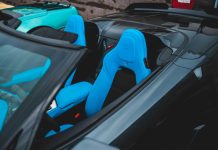As a high school student, Krish Pai spends his summers as a research intern at top University labs, working with bioscience students and professors to research how artificial intelligence and machine learning can be used to discover new and complex links between disease and therapeutic treatments. But, it has been in his backyard, where his parents installed a chicken coop and a bee hive, where Pai has discovered how mini-ecosystems can improve lives.
When the chickens first arrived at his home, he and his family set about designing a proper enclosure to house their new feathered friends. And, it was during this time that Pai discovered valuable skills of prototyping a physical world to shelter, protect, and encourage animal productivity. A prototype is a conceptual model of a physical idea, like a building or a new product.
After the family decided on a final and proper design, it was constructed, and the chickens were allowed to get familiar with their new enclosure. Krish would inspect the coop each day to gather the hidden eggs laid by the flock. He found that the fresh eggs laid by the chickens were quite different to those he was familiar with in stores. They were smaller, more colorful and had a darker yolk, which is similar to eggs found in certain countries around the world.
He did his research, and quickly concluded this could be because they did not pasteurize the eggs, unlike what is done to most eggs in the United States. Also, how the family decided to raise the chickens (free-range) and what food they were fed, made a distinct difference in the properties of the laid eggs.
Observing the chickens over time taught Krish Pai many valuable lessons and skills that he uses every day. And, the experience has given him a new vision to explore how technology can help raise animals like the chickens in his backyard, and improve the entire process for both the animals and the poultry farmers who raise them.
One possibility, he imagined, is to use a computer vision based artificial intelligence model to keep track of the individual chickens in a coup or even the livestock in a pen. By tracking the individual animals, Pai figures the farmer can determine if any left the coop or if they are eating enough food. This can help reduce the burden that farmers have and allow them to focus their time on more important work. Since farms can be in remote places with poor internet connection, an on-device intelligence system can be built.
Krish Pai believes this type of device will be able to process the video feed without an internet connection, allowing the data to be sent and processed on the cloud at a later time. This approach would further protect the privacy of the farmer because their specific farming data is being processed on the device. By exploring artificial intelligence and biomedical engineering, Pai believes the poultry and livestock industries can leverage new technologies like AI and machine learning to the benefit of both farmers and consumers.








